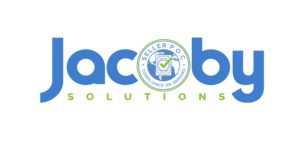Recent CPSC Consent Decrees require use of “Independent Product Safety Coordinators”
Two California toy importers have agreed to use Independent Product Safety Coordinators to create compliance programs to settle allegations of violating CPSC requirements, the Justice Department noted in a October 6 press release. They are decreed from selling and importing toys or other children’s products until these programs have been set up.
The companies are Unik Toyz Trading and Brightstar Group, both of Los Angeles. The complaints and settlements also name company officers: Julie Tran and Kiet Tran (Unik) and Sherry Chen (Brightstar)
Both decrees mandate the creation of compliance programs requiring the following:
- Use of Independent “Product Safety Coordinators” (no financial or personal ties) who would help set up a comprehensive product safety compliance program and audit products to determine which require testing and certification to CPSC rule.
- Engage an CPSC accredited third party lab for product testing
- Periodic product testing plan according to 16 CFR 1107.
- Conformity certificates retained and available to provide at CPSC’s request. The companies must have processes to verify that all underlying requirements are satisfied.
- Warning labels on all products requiring them.
- Tracking labels on all products that require them.
- Correction procedures to fix problems, conduct recalls, and respond to CPSC letters of advice.
- Incident reporting procedures to investigate incident reports, meet CPSC reporting requirements, and correct “systemic issues” found by the investigations.
Under both decrees, the companies must certify to the Compliance Office that they have met all provisions, accept CPSC facility inspections to ensure such compliance, and submit to at least two years of CPSC monitoring.
The CPSC sent 21 letters of advice to Unik from November 2011 to January 2015. The allegations involved lead content, phthalates, small parts, accessible batteries, art material labeling, third-party certification, and tracking labels
The Brightstar allegations involved lead content, warning labels on marbles, strollers’ folding mechanisms, third-party certification, and tracking labels. The CPSC sent nine letters of advice to Brightstar from September 2013 to April 2015.
Over the last several years, the creation of a compliance program has become a mandatory element of every settlement with the CPSC.
____________________________________________________________________________________________________________________________________
The CPSC expects companies to have a robust compliance plan in place. Do you have all of the required elements in place? Let Jacoby Solutions be your Independent Product Safety Coordinator and call us to schedule a CORE audit to see how your People, Process and Technology stack up..
